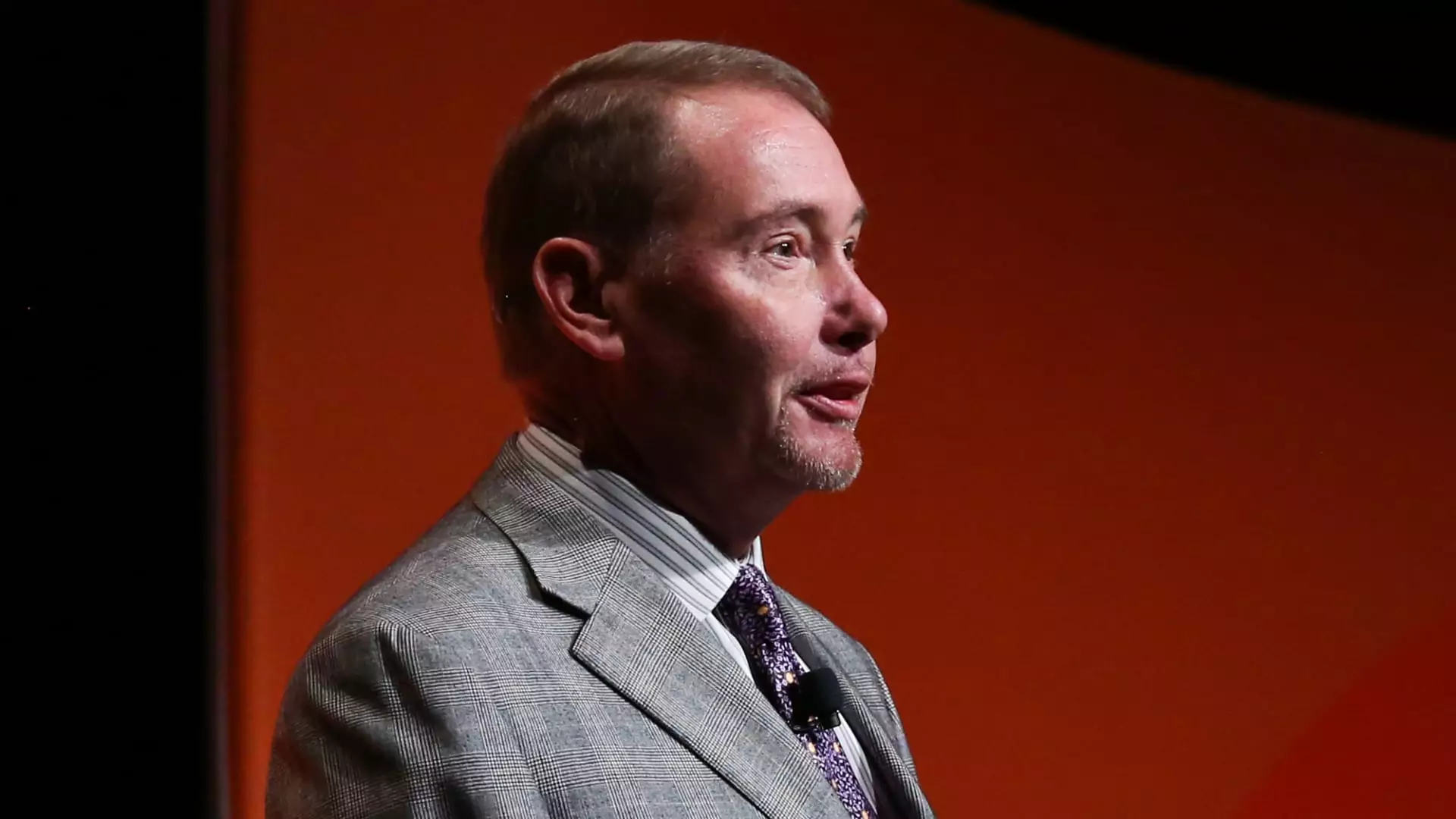In a climate fraught with uncertainty, financial authority Jeffrey Gundlach, CEO of DoubleLine Capital, has emerged as a voice of caution. As he articulates, we’re at a crossroads where investors must brace for a potential economic downturn. Amidst a backdrop of rising inflation and aggressive tariff policies, Gundlach’s insights are not merely alarmist; they reflect a deep understanding of market dynamics that should prompt both small and large investors to reconsider their strategies. His forecast—a 50% to 60% probability of a recession looming in the near future—is rooted in tangible data and a keen assessment of the current financial climate.
Market Reactions to Policy Changes
The recent volatility in the stock market serves as a testament to how interconnected economic policies and investor confidence truly are. Trump’s tariff initiatives have rattled the markets, igniting fears of an impending slowdown that has already led to a 10% pullback in the S&P 500. With the index currently hovering around 8% lower than its previous all-time high, the lens through which we observe our economic institutions should be scrutinized. It’s not just about short-term market fluctuations; it’s about understanding how such policies, coupled with a tightening monetary environment, fuel a cycle of dread among investors.
Strategic Portfolio Adjustments
Gundlach’s advice carries significant weight: the prudent course of action involves diversifying portfolios beyond American securities. He suggests investors explore avenues in Europe and emerging markets—territories often deemed too volatile or risk-laden by the mainstream. This perspective reveals a fundamental shift in investment thinking; it’s no longer merely about riding the waves of American prosperity. Instead, it’s about finding stability in diversified global opportunities that might offer a cushion against the impending volatility Gundlach fears.
Federal Reserve and Inflation Outlook
Despite the Federal Reserve’s insistence on maintaining an optimistic trajectory, its recent adjustments have fueled skepticism. A downgraded forecast for economic growth juxtaposed against a rise in inflation perspectives certainly raises red flags. While the Fed anticipates two rate cuts in 2025, the adverse situation ignites fears of stagflation—a scenario that could further exacerbate economic pressures on average consumers and entrepreneurs alike. Gundlach hits the nail on the head; if the Fed can’t manage these pressures effectively and if investors remain overly reliant on a bullish American market, we may find ourselves navigating through economic choppy waters sooner than expected.
The Broader Implications
Ultimately, Gundlach’s analysis compels a reflection not only on individual investment strategies but also on our economic health at a societal level. If a recession is indeed on the horizon, its effects won’t just be confined to Wall Street; they’ll ripple outward, impacting employment, consumer spending, and the broader economy. As the nation gears for potential downturns, it’s essential for all stakeholders—government regulators, corporations, and individual investors—to undertake a rigorous evaluation: Are we prepared to ride out this volatility, and more importantly, will the strategies we adopt now shield us from the fallout? The time for proactive reconsideration has arrived, reminding us that economic acumen is not just about understanding current trends but anticipating future needs and shifts.

